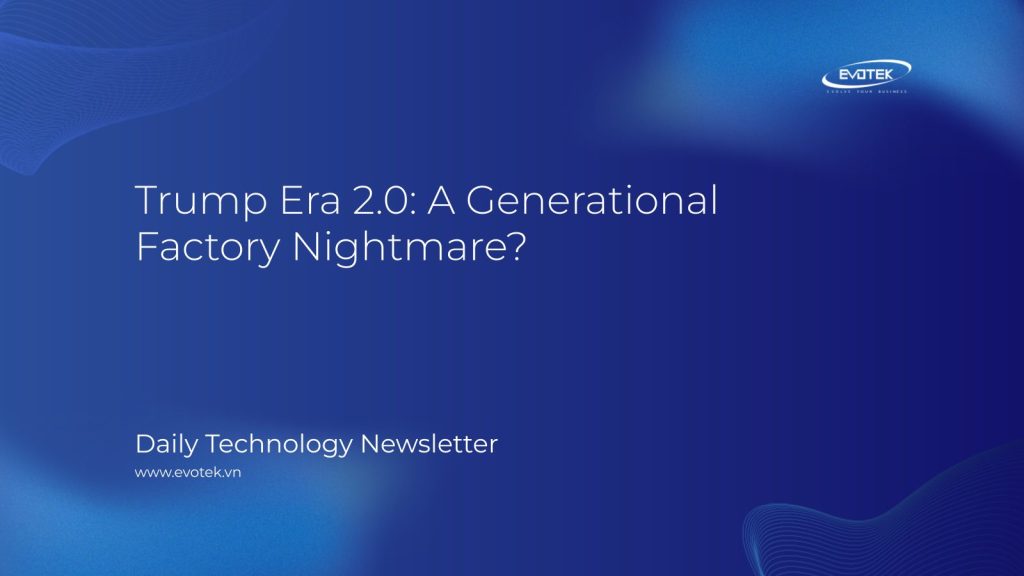LISTEN TO THE 404 MEDIA PODCAST
The vision of Howard Lutnick, now a key figure in the Trump administration, paints a concerning picture of America’s future workforce: a technofeudalist dystopia where generations are chained to factory jobs.
In a recent CNBC appearance, Lutnick outlined a future fueled by tariffs, where families work in the same factories for generations. These aren’t framed as stepping stones, but as lifetime commitments with limited upward mobility. This “new model” envisions workers earning “$70s, $80s, $90,000 a year” – a decent wage, but one that seemingly caps their potential.
This raises critical questions about innovation. Who will drive scientific discovery and technological advancement if the focus narrows to factory work? The administration’s simultaneous defunding of education and hostility towards scientists suggests a reliance on AI to fill the innovation void – a precarious prospect.
While investing in manufacturing and vocational training is vital, the administration’s apparent obsession with factory work is limiting. Former government workers, including coders and scientists, are also expected to transition to factory roles, highlighting a narrow view of economic opportunity.
Even the administration acknowledges the eventual automation of these jobs. This begs the question: what happens when robots replace human workers? Lutnick’s vision seems hazy on the long-term implications, emphasizing “hundreds of thousands” of jobs, but lacking specifics on the nature of those roles.
The administration’s actions contradict its rhetoric. While advocating for American manufacturing, it simultaneously attacks schools, foreign students (key drivers of innovation), and the burgeoning clean energy sector, which offers promising blue-collar opportunities.
The vision extends beyond economics, with figures like Stephen Miller advocating for a nationalistic education focused on patriotism. This raises concerns about intellectual freedom and critical thinking.
A successful manufacturing strategy requires a holistic approach: strategic tariffs, investment in technical training, and support for local ownership. The current path, however, seems to prioritize purging immigrants, scientists, and higher education in favor of a outdated economic model.
The saving grace? These policies are unpopular, making this dystopian future unlikely. However, the administration’s message is clear: a bleak, unimaginative future where individuals are confined to rigid roles, controlled by those who own the means of production.
Imagine a world where:
- AI chatbots are your closest companions.
- Tariffs inflate the cost of foreign goods.
- Factory work is your family’s destiny.
- Your children repair robots, just like their parents and grandparents.
This is the future being pitched by the current administration – a future that demands critical examination and resistance.
404 Media is an independent website whose work is written, reported, and owned by human journalists. Our intended audience is real people, not AI scrapers, bots, or a search algorithm. Become a paid subscriber here for access to all of our articles ad-free and bonus content.
ABOUT THE AUTHOR
Jason is a cofounder of 404 Media. He was previously the editor-in-chief of Motherboard. He loves the Freedom of Information Act and surfing.

 日本語
日本語 한국어
한국어 Tiếng Việt
Tiếng Việt 简体中文
简体中文